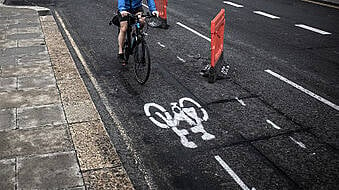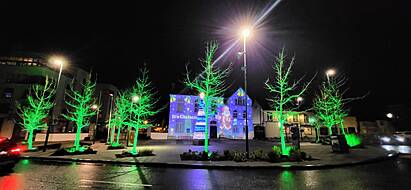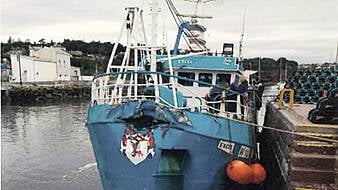A High Court judge has described claims that a family of six have been living in a one-berth caravan and sleeping in a car for several months as "wretched" and a "very unsettling situation."
The comments were made on Monday by Ms Justice Marguerite Bolger after she granted lawyers acting for John and Nikita McInerney, and their four young children permission to bring a High Court challenge against Tipperary Co Council's handling of the family's accommodation situation.
The family, who are members of the Irish Traveller Community, had been living in places the side of the road in Toomevara, Co Tipperary for a period, but the court was told that after being moved on they have located at the Springfort Retail Park, in Nenagh. They had been told by An Garda Síochána to vacate that location as well, the judge also heard.
The family fear that they may be prosecuted by the Gardaí, and the vehicles they have been using seized.
Between April and mid-July they mainly had been sleeping in a car, the court heard.
They had spent some of that time in emergency accommodation, before obtaining a one berth caravan in mid-July.
In their High Court action, the McInerney's have claimed that since May they have been precluded by the council from getting hotel accommodation as they say they are only provided with funds that only partially covers the cost of B&B accommodation.
Colm O'Dwyer SC, with Sean Betty Bl instructed by solicitors for the Free Legal Advice Centres (FLAC) for the family said that the situation was pretty bad for his clients, and it was their case that council's policy towards the McInernery's was rigid, inflexible and not meeting his clients' basic needs.
Counsel said that the caravan was totally unsuitable, and the Gardai had also told the family that it cannot remain in the retail park.
They that the council have offered his clients €100 per night towards B&B accommodation, which is insufficient.
The cost of B&Bs they claim is more than what they have been given by the Council, and in order to get that accommodation they have to make up the shortfall themselves.
The court heard that Mr and Mrs McInerney are on social welfare.
Counsel said that for a variety of reasons the family find it difficult to get emergency B&B accommodation in the area they live, for reasons including that the family size is too large, and that many of the places they contact are full of tourists.
Having no fixed address has also caused the family difficulties, he added.
A further concern is that some of their children are due to return to school in September.
Counsel said that the council's decision amounts to breach of the McInerney's constitutional and ECHR rights, and the local authority's obligations under the 2014 Irish Human Rights and Equality Act.
In their judicial review action against the family it seeks various orders and declarations from the court including orders directing the Council to reconsider their accommodation needs.
They also seek orders quashing the council's decision to place them on a waiting list for emergency accommodation and that they only be provided with partial funding for B&B accommodation.
Ms Justice Bolger said that she was prepared to grant the family permission, on an ex-parte basis, to bring the challenge.
The judge said that she noted the council's response to the family's situation, which she added was "unsatisfactory from all relevant parties' point of view. "
The judge said the matter was urgent, and she wanted to have both side's arguments put before the court as soon as possible.
He also encouraged all the sides to work together to try and resolve the situation. The judge, after making directions regarding the exchange of legal documents in the case, adjourned the case to a date in September.







